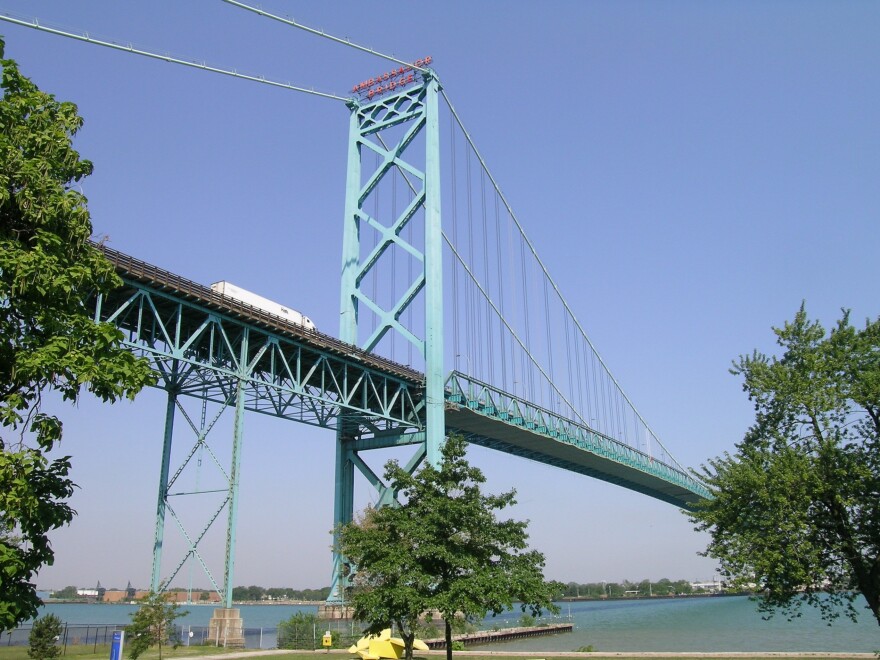Governor Gretchen Whitmer vetoed part of the COVID relief bill which would have allowed more kinds of hazardous materials to cross the Ambassador Bridge.
Language from a 2012 draft report by the Department of Transportation was lifted and inserted into the supplemental COVID relief package. It would require the Michigan Department of Transportation to recommend the federal government permit two additional classes of hazardous materials to cross the international bridge.

Senator Stephanie Chang (D-Detroit) opposes that and sees the move to put it in the COVID bill as cynical.
“By inserting this boilerplate, ordering the department to use a draft report from the middle of the process was a pretty clearly a violation. And so I think it probably made it pretty easy to make that decision to do the line item veto,” Senator Chang said.
She believes allowing the additional hazardous materials to cross the bridge would endanger her constituents who live near it.
She adds the company and the Moroun family who own the bridge have been pushing for lifting the restrictions for years.
“I would imagine, given the amount of money that they have and the amount of influence that they try to have in Lansing, that it won't go away. But what I think is really important is to note that the Governor has, through this line item veto, taken a stance,” Chang said.
The Detroit International Bridge Company, Incorporated which owns the Ambassador Bridge declined to comment about the veto, but in a statement said it has a formal request before the state to lift restrictions on the additional hazardous materials and will continue to pursue that.
“We have submitted an analysis demonstrating that lifting the restrictions will reduce the number of miles driven on Michigan roads by commercial motor vehicles hauling hazardous materials by over 100,000 miles per year,” the company said in a statement.
That’s because vehicles carrying those classes of hazardous materials must use crossings such as the Blue Water Bridge at Port Huron or the Detroit-Windsor Truck Ferry.
Senator Chang says she’s also concerned about the structural state of the 91 year old bridge and says the company has not been fully transparent about its fire suppression system. The company says that system has been inspected and approved by both the Detroit and Windsor fire departments this year.



